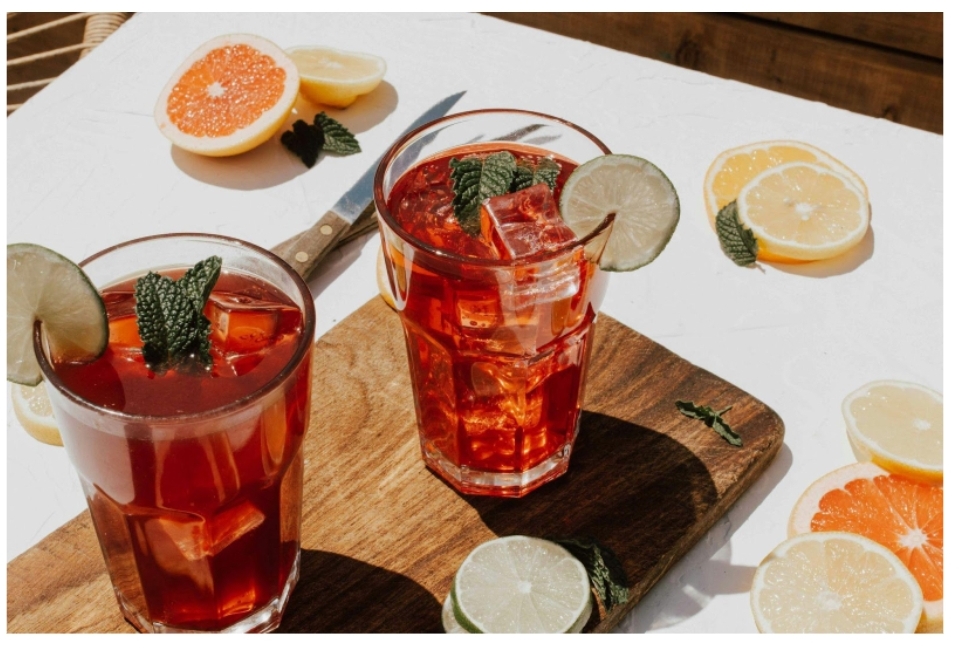From Breakfast to Bites: How Eating Trends Reflect Changing Lifestyles

A decade ago, no one would’ve guessed that grocery aisles would one day be stocked with cauliflower pizza crusts, avocado brownies, and zero-sugar beef chips. But here we are, living in a world where food has become as much about identity and philosophy as it is about flavor.
From intermittent fasting and meal replacement shakes to organic-only shopping and raw food enthusiasts, eating trends are evolving faster than ever. Even seemingly simple snacks now spark debates. For example, questions like are pork rinds carnivore reveal how deeply personal and polarized dietary choices have become.
So what’s driving this massive shift in how we eat, and what does it say about us?
The Rise of Food as Lifestyle
Eating used to be functional, fuel for survival. But today, food is fashion, food is social currency, and food is self-care. In many ways, what we eat now communicates who we are just as much as what we wear.
Social media has transformed meals into curated experiences. A well-plated smoothie bowl or bone broth latte isn’t just nourishment, it’s a status symbol. With hashtags like #cleaneating, #foodisfuel, and #carnivorediet dominating timelines, it’s clear we’re no longer just feeding ourselves, we’re branding ourselves.
This doesn’t mean people are being inauthentic. Rather, food choices are becoming more deliberate. Many now view nutrition through the lens of performance, longevity, and environmental ethics, not just weight loss.
The Decline of the “Standard” Meal
Traditional mealtimes are fading. Busy schedules, remote work, and the rise of on-demand living have pushed people toward fragmented eating habits. Breakfast may be replaced with black coffee and MCT oil. Lunch might be a protein bar between Zoom calls. Dinner? Often assembled, not cooked.
This on-the-go mindset has opened the door for snacks to take center stage. But these aren’t your grandmother’s cookies and cheese crackers. Today’s bites are engineered to fit macros, boost metabolism, and keep you full without the crash.
The Microbiome Movement

One of the most exciting shifts in modern nutrition is the focus on gut health. The rise of probiotics, fermented foods, and fiber-rich diets shows a growing awareness of the gut-brain connection.
According to the National Institutes of Health (NIH), our gut microbiota can influence not just digestion, but mood, cognition, and even immune response. This insight is reshaping how people approach food, emphasizing variety, balance, and foods that feed the “good bacteria.”
As a result, kombucha, kefir, kimchi, and fiber-rich snacks have become household staples for the health-conscious.
Carnivore, Keto & the Rise of “Less is More”
While some lean toward plant-based abundance, others are embracing restriction-based diets. The carnivore diet, for instance, strips things down to the basics: meat, salt, and water.
These minimalist diets appeal to those overwhelmed by modern nutrition advice. They offer clarity and simplicity, eat this, not that. No macros to track. No labels to decode. Just rules that are easy to follow.
It’s in this context that even simple snack choices become discussion points. Are pork rinds allowed on a carnivore diet? Turns out, yes, but quality and processing matter, as explored in detail on the Carnivore Snax blog.
What these trends underscore is a growing desire to get back to basics, to trust nature over chemistry, and to eat with intention.
The Protein Priority
Across nearly all diet types, from Mediterranean to Paleo to Zone, one thing has risen to the top: protein.
Consumers are now hyper-aware of their protein intake. Why? Because protein fuels muscle repair, satiety, metabolism, and even immune health. It also keeps blood sugar stable, which reduces energy crashes and mood swings.
From hard-boiled eggs and Greek yogurt to beef crisps and collagen bars, protein-first snacks have become non-negotiables in many people’s diets.
Even non-fitness enthusiasts are now shopping with grams-per-serving in mind, scanning shelves for foods that do more than taste good.
Mindful Eating in a Hyperstimulated World
We live in a time of constant sensory overload. Notifications, multitasking, and social noise make it harder to be present. For many, eating is no longer a focused ritual, it’s a background activity.
Mindful eating aims to change that. It encourages people to slow down, chew thoroughly, and actually taste their food. This not only improves digestion but also leads to greater satisfaction and less overeating.
In response, some brands now encourage single-serving packaging, detailed ingredient transparency, and texture-focused foods to bring mindfulness back to the plate, even if it’s a snack.
Food Transparency and Ethical Concerns
More consumers are asking, “Where did this come from?” Sustainability, animal welfare, carbon footprint, and labor practices are now part of the buying decision.
This isn’t limited to food origin, it includes packaging and brand ethos. Whether it’s grass-fed sourcing, regenerative farming, or plastic-free packaging, ethical alignment can be a deal-breaker.
This is especially true among younger generations, with Gen Z leading the charge in choosing brands that reflect their values, not just their appetites.
Personalized Nutrition: One Size Doesn’t Fit All
The popularity of food sensitivity tests, nutrigenomics, and personalized supplement subscriptions signals a new era: customized nutrition.
Rather than follow a universal “best diet,” people are beginning to eat for their biology. Whether it’s low FODMAP for IBS, low histamine for allergies, or high-protein for muscle growth, the era of generic meal plans is ending.
Apps, wearables, and smart kitchen devices are all playing a role, using data to guide when, how, and what people eat.
The Future of Snacking
So where do we go from here?
Snacking will only become more strategic. As work and life continue to blur, the demand for portable, purposeful nourishment will grow. Expect more innovation in high-protein, gut-friendly, allergen-free options with minimal processing and maximum benefit.
Brands that understand not just the nutritional science but the emotional psychology behind food choices will lead the next wave.
Whether you’re grazing between meetings, powering through workouts, or simply trying to eat better without sacrificing joy, the future of food is not about restriction, it’s about refinement.
We’re not just snacking anymore. We’re crafting micro-meals with macro impact.

